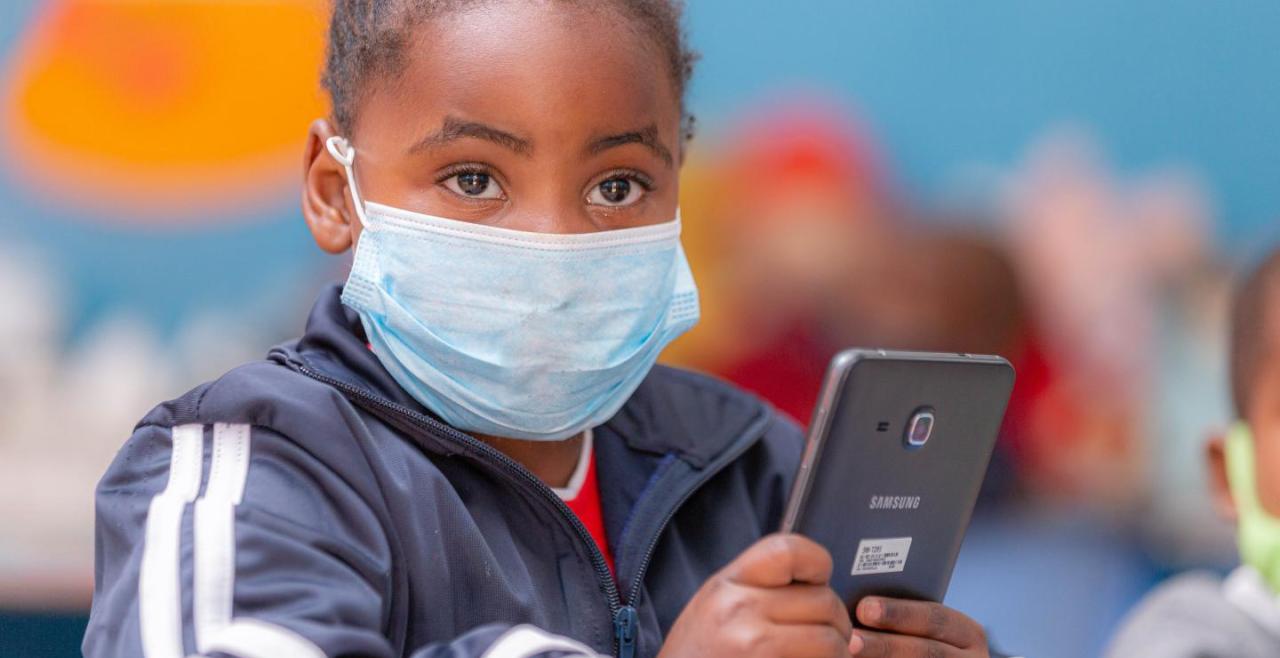New Data Protection Act strengthens protection of women and children from online violence in Zimbabwe

Zimbabwe - It is hard to imagine a world without the Internet. With our lives becoming more reliant to being online – our social interactions have also increasingly expanded to the online space. The online environment provides us with many efficiencies and beneficial opportunities in life through access to information, connections and education – often all in the palm of our hand.
But the online space is simultaneously a realm for people to harass, abuse, and exploit many vulnerable groups, including women and children. Since 2018, the number of photos of children being sexually abused reported by tech companies has doubled. UN Women reports that 9 million women have experienced a form of serious Internet violence since the age of 15.
Child online protection is more important than ever as the global COVID-19 pandemic has shifted more work, schooling, and socializing onto the internet.
Child online protection is more important than ever as the global COVID-19 pandemic has shifted more work, schooling, and socializing onto the internet.
Over the past years, Zimbabwe has distinguished itself as a country committed to fighting online violence. This commitment has been demonstrated by launching the Zimbabwean Child Online Protection Taskforce (ZICOP), signing the WeProtect Call for Action to end online child sexual abuse and ratifying the UNCRC Optional Protocol on the Sale of Children, Child Prostitution and Child Pornography.
On 3 December 2021, the Zimbabwe Government enacted the Data Protection Act [Chapter 11:12]. Parts of this Act acknowledge the increased risk of online violence to which women and children are exposed to and clearly criminalises the use of information and communication technology to commit these acts.
The Act makes it illegal to send intimate images without the consent of the depicted person, informally also called ‘revenge pornography’. As these acts are largely committed against women, this represents an emerging form of gender-based violence. Closely related is the provision on ‘recording of genitalia and buttocks beneath clothing without consent’, best known as ‘upskirting’. Further, the Act makes specific provision for the protection of children from online violence.
At the centre of this stands the provision on child sexual abuse material (formerly called ‘child pornography’), which makes it a criminal offence to produce, disseminate, possess or access child sexual abuse material. This provision is in line with international best practice which recommends that streaming (‘accessing’) of such material should be criminalised. In addition, the Act criminalises ‘cybergrooming’ of children, where an adult establishes a relationship with a child online to facilitate online or offline sexual contact. Lastly, the Act makes it a criminal offence to expose children to pornographic material.
Online violence against women and children can have an equally detrimental impact on their health and wellbeing as contact offences. Victims can suffer from short and long-term consequences such as anxiety, shame, embarrassment, loss of self-esteem, suicidal thoughts and self-harm. Knowing that the images or videos might still be circulating on the internet makes it especially difficult to heal from the trauma of the images having been shared.
Internet service providers, industry and tech companies play a critical role in raising awareness of online violence against children.
Internet service providers, industry and tech companies play a critical role in raising awareness of online violence against children and must work with law enforcement to take down content. In order to enforce this obligation, the Data Protection Act [Chapter 11:12] creates a criminal liability for service providers who fail to remove or disable access to illegal content, if they know or have been made aware that they are storing such content.
Key strategies in this new piece of legislation include creating clear reporting mechanisms for customers, prioritising safety-by-default when creating new products, and adapting a code of conduct to end online violence against women and children. As part of the Cybersecurity Month (November 2021), the Ministry of Information and Communication Technology, Postal and Courier Services, with support from UNICEF under the joint EU-UN Spotlight Initiative, held Zimbabwe’s first industry roundtable on online violence against women and children.
The roundtable helped inform the industry and tech companies on the forms of online violence against women and children and created awareness of the available tech and non-tech solutions. The important role of the industry and tech companies is also highlighted in the draft Child Online Protection Policy, which is currently awaiting approval from Cabinet. Going forward, standardised notice and take down procedures and codes of conduct should be developed to guide the industry in their role to ensure children are safe online.
By Sabine Katharina Witting. Story originally published on UNICEF.

